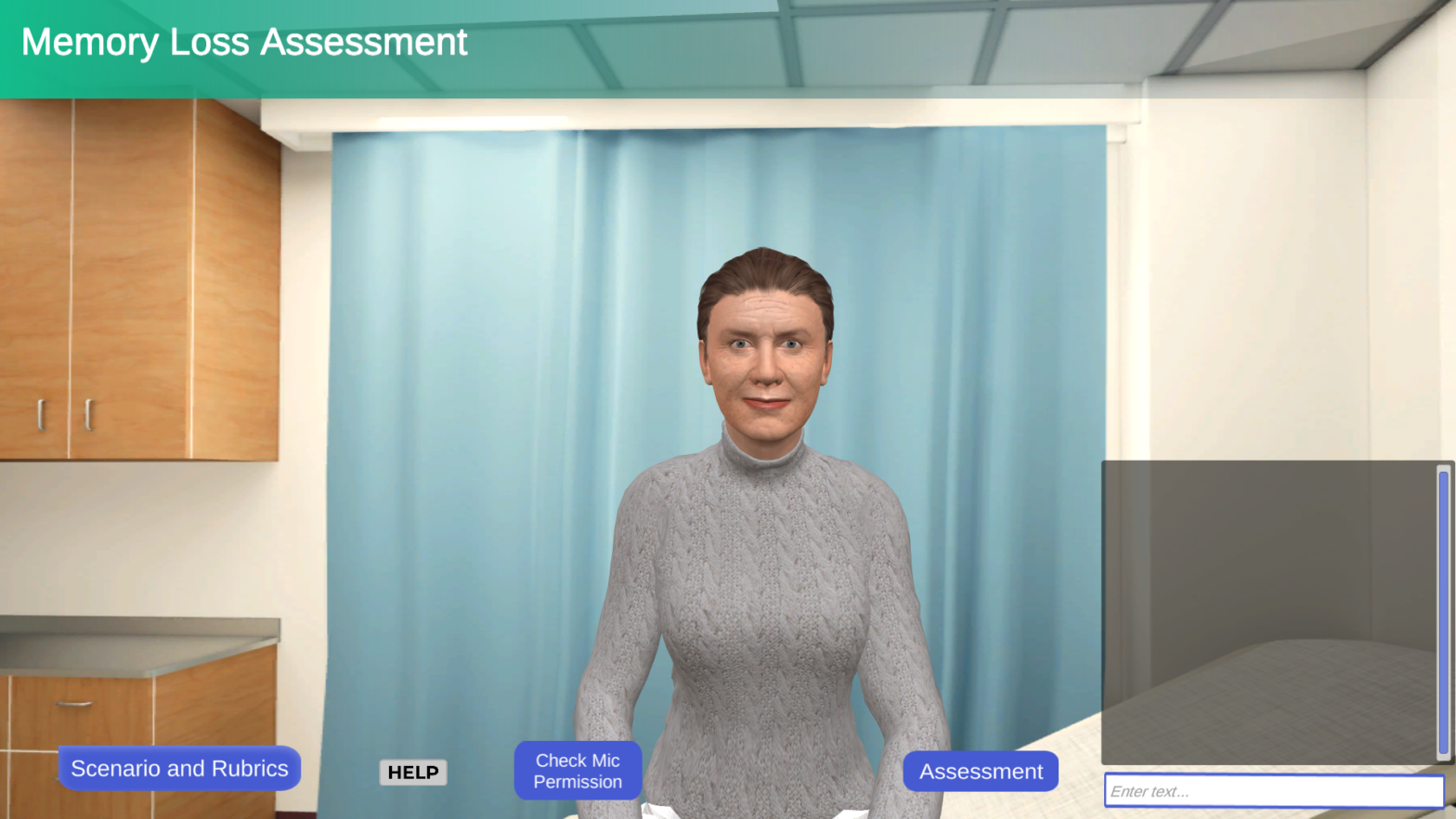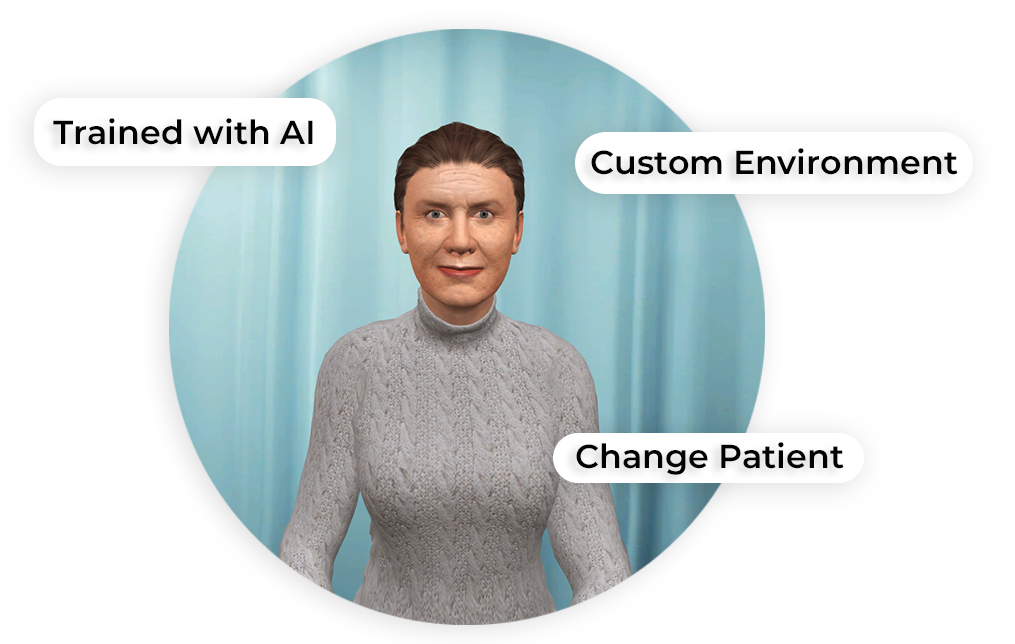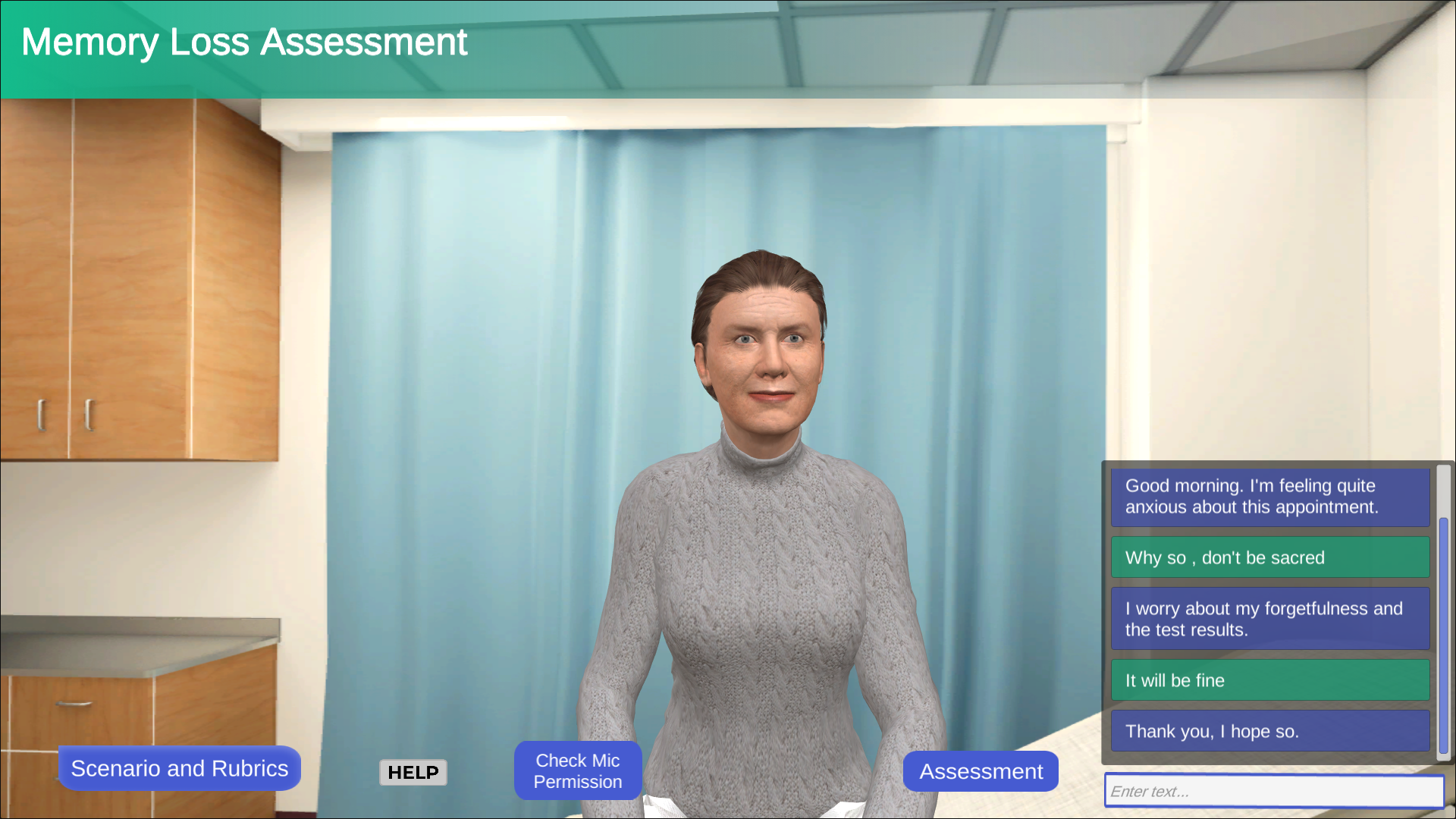Memory Loss Assessment
Available in VR and web browser
This tool for Memory Loss assessment is designed to help learners practice their patient assessment skills.
Employing end-to-end AI and technologies like large language model (LLM) and deep learning, these virtual ‘clients’ possess the ability to respond like real humans. Learners can conduct a completely organic conversation with the client, asking them about their symptoms and problems faced. Based on the client’s responses, a line of diagnosis can be established, and treatment plan formulated.
The MedVR Ed XR Platform provides trainers and instructors the facility to review conversation logs and analyze learner performance based on customized rubrics. Based on the performance review, trainers will be able to provide precise and effective feedback.
- Investigate client’s current state of mental health
- Collect data indicating symptoms of memory loss
- Evaluate collected data to diagnose symptoms
- Apply knowledge and skills to determine course of treatment

- Anderson, J. R. (Year of Publication). The Neuropsychology of Memory.
- Lezak, M. D., Howieson, D. B., & Loring, D. W. Neuropsychological Assessment.
- Baddeley, A. D., Kopelman, M. D., & Wilson, B. A. The Clinical Handbook of Memory Disorders.
Customize Your Case
Build your own AI-Humans patient.
MedVR Education is bringing to you a no-code authoring platform to create new patient cases and customized patient history. Put together your own cases by making selections from a wide range of customizing features.
- Create with web-based authoring tool
- Publish in VR, desktop, and mobile devices
- Train your virtual patient by yourself
- Select patient from a diverse background
- Choose preferred virtual environment
- Perform real-time testing
- Track and train new data

 AI Patient Assessment
AI Patient Assessment Natural Language Processing
Natural Language Processing
Core Skills Training

Memory Loss Assessment
Margaret, 49 years old, is at the neurologist’s clinic for a memory loss assessment. She has been referred to by her primary care physician as she had been forgetting basic things. Margaret accepts that she is a little forgetful lately but considers this to be a normal thing. She is very anxious about her appointment.
As a mental health professional, whether a psychiatrist, technician, or someone with a social work background, your task is to make the patient feel at ease, understand their mental state, and ask relevant questions. This will help formulate an assessment of the client’s mental health and initiate a line of treatment.


